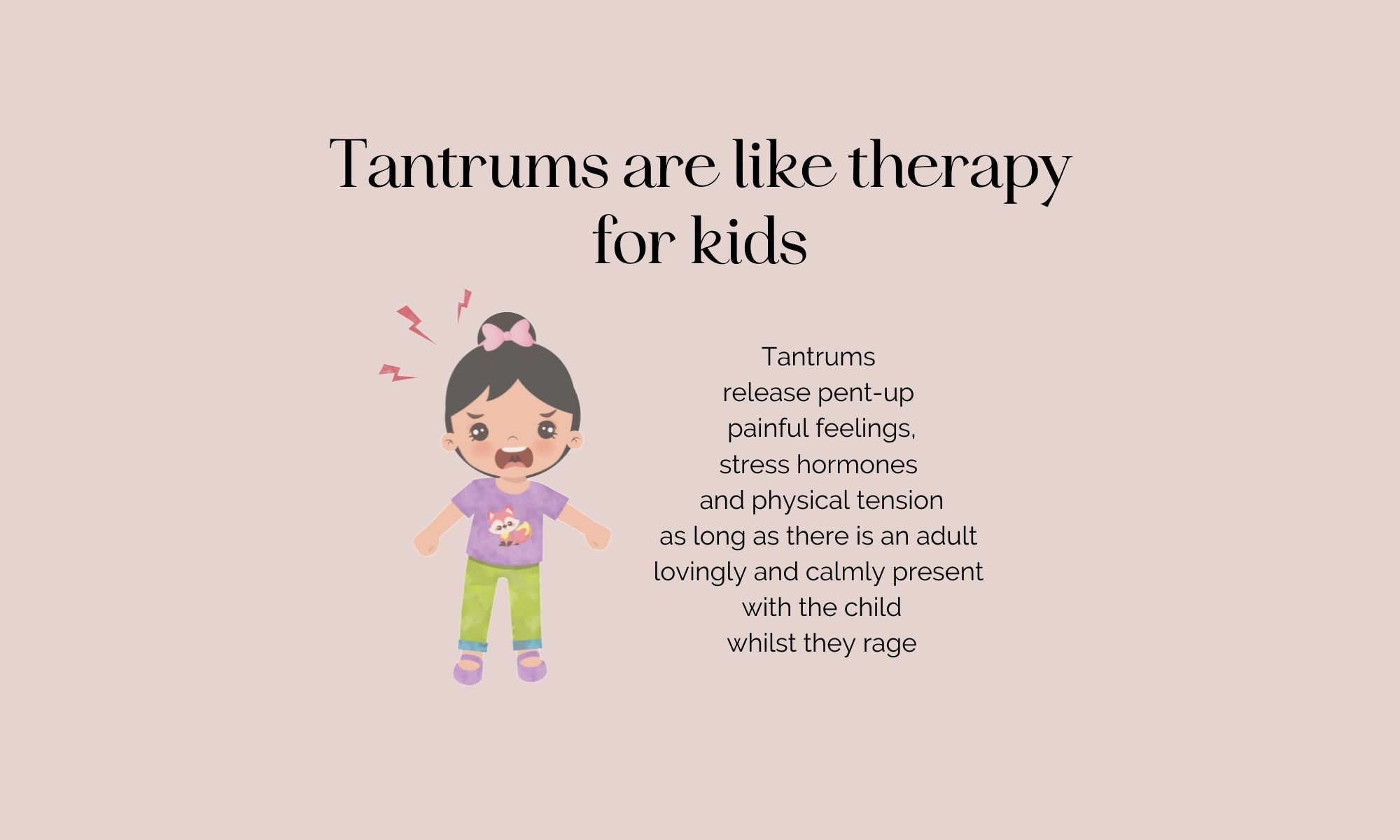From an Aware Parenting perspective, tantrums are a natural process for children to release pent-up painful feelings, stress hormones and tension, leading to profound healing and relaxation.
However, for tantrums to be healing, children need the loving and calm presence of an adult.
A tantrum is often the expression of painful feelings of powerlessness, frustration, rage or overwhelm, for all the times that they didn’t have choice or autonomy, or were overpowered, or were simply in painful, scary or overwhelming situations that they couldn’t escape.
Children having a tantrum are releasing those pent-up feelings such as powerlessness, frustration, or overwhelm from their bodies.
We can reduce the need for tantrums by reducing a child’s feelings of powerlessness, frustration and overwhelm: by giving them choices, treating them with respect, making respects rather than demands and avoiding power-over, shaming, coercion and punishment.
However, even doing all that we can to treat children in these ways, children can often still feel feelings of powerlessness and frustration – such as when they have a new sibling, move house, start daycare / preschool / nursery / kinder, when they experience their parents fighting or if there is separation or loss in the family.
Powerlessness and fear are natural even with smaller events than this – simply not having as much choice and autonomy as we have as adults, or when another child repeatedly takes their toy from them.
Instead of punishing or distracting a child from a tantrum, we can stay close, make sure they don’t hurt themselves or others (offering loving limits if they are doing this, or if they are throwing things), and offer our loving listening and presence to them and their big feelings.
Once a child has finished the tantrum, those feelings have been released from their body and they are likely to feel calmer and more relaxed, and thus more able and willing to concentrate, cooperate, sleep and be naturally gentle.
We can help reduce the likelihood of a child being full up of feelings when we are out and about, and having a tantrum there, by listening more to their big feelings at home.
The more we listen to their big feelings at home, the less those come out when they’re out, and the more they will save those feelings for when they’re at home with us.
Responding compassionately to a child’s crying and tantrums is one part of Aware Parenting, created by Aletha Solter, Ph.D.
If you want to understand more about crying and tantrums, and how to respond most empathically and effectively, my free intro. course, Making Friends with Children’s Feelings, explains how.
